Tour de France 2014
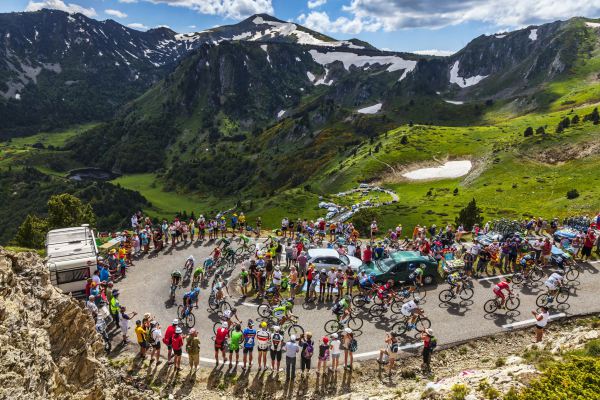
At 101 years old, the Tour de France is still an event of immense beauty and suffering. This year’s race promises to be one of the most exciting in recent memory, writes Iain Treloar.
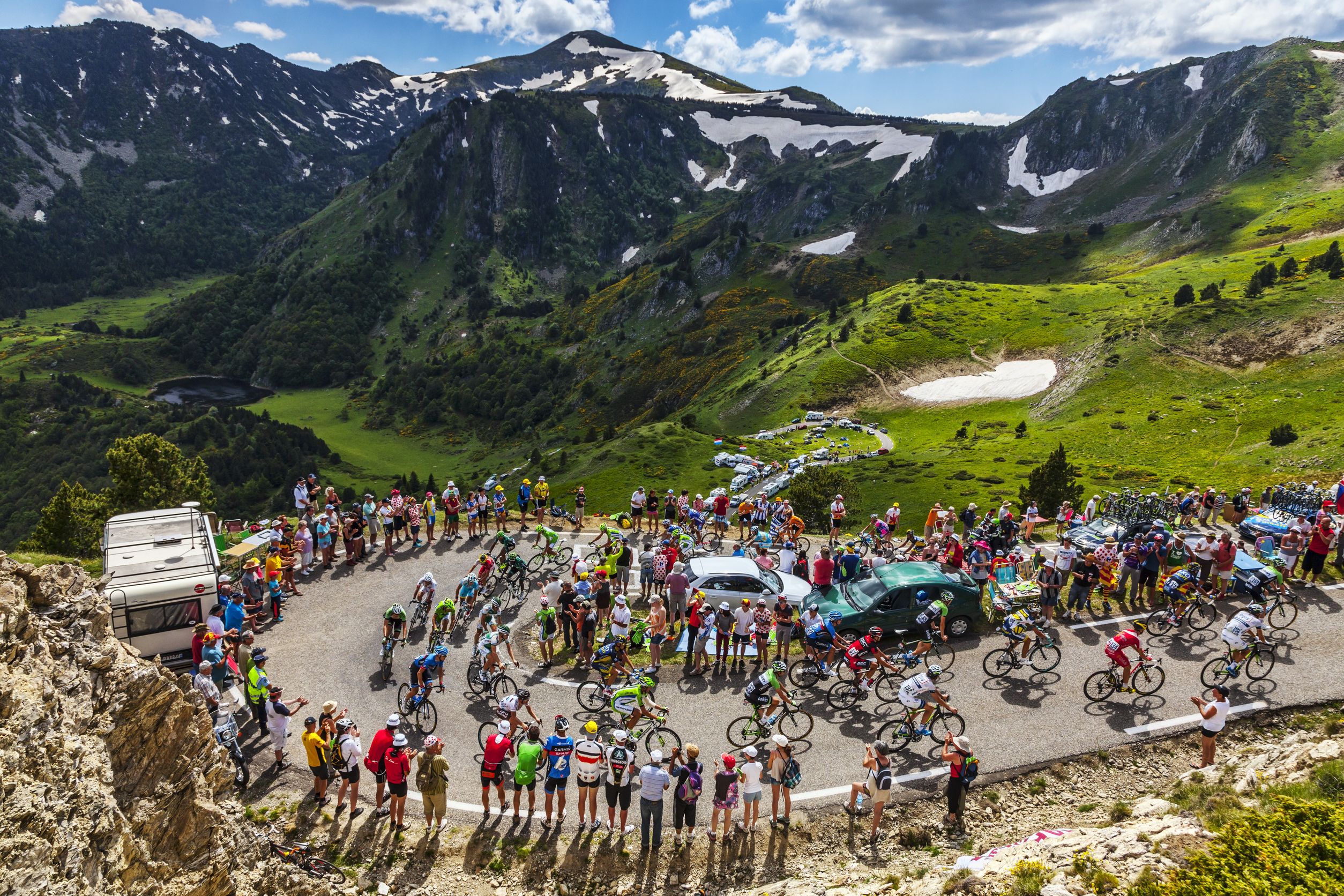
Fields filled with sunflowers and jagged peaks scraping the sky rush by, as a technicolour peloton threads a tarmac ribbon through the French countryside. The Tour de France is almost here.
It’s an event rich in history, scandal and drama, and the 101st edition this July is set to deliver another amazing spectacle.
This year’s Tour runs from the 5-27 July, with riders travelling 3,656 kilometres in a roughly anti-clockwise loop of France. The route favours climbers, with only one time trial on the penultimate stage. In total there are five mountain-top finishes, six mountain stages and interesting, scenic routes that will keep the race animated even when the road isn’t pointing upward.
Continuing its regular habit of starting in another country, this year the Tour crosses the English Channel with the Grand Depart in Leeds, Yorkshire. After three stages in the UK, the riders finally hit French tarmac and some of the serious challenges. Stage 5 has the potential to end the podium ambitions of lighter climbers that haven’t done their homework; there’s 15 kilometres of cobbled roads, including some of the most iconic sections of the Paris-Roubaix course. Then, it’s on to the first grueling climb of the race in the Vosges mountain range in the North-Eastern corner of France. Stage 10 will be the first major sorting out of the General Classification (GC), followed by the High Alps for stage 13 and 14. The next major flashpoint is three brutal Pyrenean stages from stage 16-18; if that fails to prove decisive, the time trial on the penultimate day could see a late reshuffle of the GC. The famous Tour finish on the Champs Elysees will again be conducted at twilight, making for a picturesque end to what should be a thrilling three weeks.
Last year’s Tour saw a dominant performance by Chris Froome of Team Sky. As runner-up to Bradley Wiggins in 2012, there was rumoured tension between the two riders, but Froome was finally granted the role of undisputed team leader the following year after Wiggins pulled out, citing illness. This year, we expected to see the two fighting it out alongside one another again, before Sky management snubbed Wiggins in an embarrassingly public spat. If all doesn’t go to plan for Froome, this could prove a disastrous decision.
That’s not to say that Sky isn’t in it to win it. Adding to Sky’s considerable firepower for this year’s Tour is Tasmanian pocket rocket, Richie Porte. Originally slated for team leadership at the Giro d’Italia this year, a recurring illness forced a withdrawal to focus on preparing for a supporting role in this year’s Tour. Porte’s form has been patchy so far in 2014, but a well-timed revival will see him again take his place by Froome’s side as a key lieutenant, along with Mikel Nieve, a Spanish climber in very good form. With a tradition of metronomic excellence, Sky should yet again be the team to beat, but their dominance isn’t looking quite so assured this year, as they aim to carry Chris Froome to Paris in yellow.
Compared to his key rivals of 2013, Froome looks to have a fairly straightforward run at a second Tour title; Nairo Quintana – 2nd last year – elected to skip the Tour and won the Giro in commanding fashion instead, while 3rd placer in 2013, Joaquim Rodriguez, crashed out of the Giro, fractured some ribs and is unlikely to challenge for the podium this year. However, despite the mighty performance of the Sky juggernaut over the last two Tours, there is still every reason to believe that this will be one of the most hotly contested races of recent years, with foes new and old in outstanding form.
Based on the early season, one of the toughest battles on Froome’s hands will come from Alberto Contador (Tinkoff Saxo). After serving a doping suspension, he wasn’t in top form last Tour and is out for revenge. At his best, he’s capable of distancing Froome in the mountains, and keeping pace with him in the time trial. However, where he may have an edge is in his gutsy riding style. While Froome and Team Sky have a highly scientific approach to racing and are content to watch their power meters, Contador races from the heart, and is willing to put it all on the line with audacious attacks. It’s a high-risk approach, but may pay dividends over the coming weeks. Contador was the equal of Froome in the key pre-Tour form gauge, Criterium du Dauphine, and has an impressive team riding in support of him this year, including Michael Rogers and young Giro-revelation, Rafael Majka.
Team Astana’s Vincenzo Nibali is cut from a similar “attacking” cloth to Contador, and has an excellent record over recent years, finishing on the podium in six of the seven Grand Tours he’s contested since 2010. After skipping the Tour de France last year to concentrate on the Giro—which he easily won—he’s structured this season around the Tour de France and will be one of the toughest to shake in the decisive mountain stages. He’s also a competent time-triallist, and is supported by a very solid team, including Jakob Fuglsang, 7th placed in 2013.
Speaking of attacking riders, Alejandro Valverde of Movistar will enjoy undisputed team leadership at this year’s Tour. Valverde has had a string of top 10 placings in Grand Tours stretching back for more than a decade, and, despite serving a suspension after being linked to Operacion Puerto, remains one of the most well-rounded riders in the peloton. In the Tour he’s had a run of bad luck, but barring misfortune he’s more than capable of a podium finish, and comes with a squad filled with Basque climbing talent to help him get there.
Although ostensibly supporting team leader (and World Champion) Rui Costa, my money is on a surprise showing by Lampre-Merida’s Chris Horner, a truly intriguing rider. Winner of the Vuelta a Espana last year at the age of 41 after a career spent in the service of others, he’s a climber who excels out of the saddle on steep pinches. He’s also one of the great characters of the peloton, with an eccentric approach to nutrition (fast food) and training (huge solo slogs). He was set for a tilt at the Giro before falling victim to a nasty hit-and-run in training, so his form for the Tour is as yet uncertain at the time of writing. However, he showed at the Vuelta that you’d be silly to bet against him. If he rides a smart race before the big mountain stages he’s capable of riding away from just about anyone and producing a real upset.
In addition to all of these worthy adversaries are a number of dark horses: Tejay Van Garderen leads BMC in Cadel’s absence, great French hopes Pierre Rolland (Europcar), Romain Bardet (Ag2r) and Thibaut Pinot (FDJ.fr) will be looking to shake France’s poor GC reputation of recent years, while Jurgen van den Broeck (Lotto-Belisol), Bauke Mollema (Belkin) and Andrew Talansky (Garmin) are the best of the rest.
Our prediction for the podium is Froome 1st, Contador 2nd, Nibali 3rd. However, there’s an awful lot that can happen between Yorkshire and Paris, leaving the stage set for one of the most thrilling, closely-contested Tours in recent years. Get ready for a sleepless July—you won’t want to miss this.
To watch the Tour live means a lot of late nights and bleary eyes the morning after – below we’ve picked out the five must-see stages that you should stay up for, and those elevation profiles should tell you why. A complete stage-by-stage guide is down the page.
SBS are televising every stage live (usually from around 10pm-1am), with nightly highlights packages at 6pm.
Stage by stage
Stage 1 – Sat, 5 July
Leeds > Harrogate, 190km
The 2014 Tour kicks off in Northern England, with a lumpy first stage that may cause complications for the fast men. Mark Cavendish will have added motivation to win this; Harrogate is his mother’s hometown.
Stage 2 – Sun, 6 July
York > Sheffield, 201km
Far from straightforward, today’s route is one for the hard men. With nine short but steep categorised climbs, and a brief rise on the run in to the finish exceeding 30%, it’s unlikely to come down to a pure sprint finish. Expect a late breakaway, or a punchy rider like Simon Gerrans or Peter Sagan to triumph. Should be absolutely riveting.
Stage 3 – Mon, 7 July
Cambridge > London, 159km
A shorter, flatter stage will again provide an opportunity for the sprinters. Finishing on The Mall in London, this will be a hard-fought, speedy spectacle.
Stage 4 – Tues, 8 July
Le Touquet-Paris-Plage > Lille, 163.5km
Having finally crossed the Channel, this stage in the north-eastern tip of France is likely to come down to a bunch sprint; although the route isn’t overly challenging, strong winds may be a factor.
Stage 5 – Wed, 9 Jul
Ypres > Arenberg Porte du Hainault, 156km
With 15km of the same cobbled roads raced in Paris-Roubaix, this stage has the potential to destroy GC ambitions before the Tour even hits the mountains. A poorly timed puncture or crash on the cobbles could prove decisive later on in the race. Indeed, this stage alone was enough to scare Nairo Quintana away from the Tour this year.
Stage 6 – Thurs, 10 July
Arras > Reims, 194km
After the cobbled carnage of the day before, this will be another chance for the sprinters to show their strength. As usual, the race will be animated by early breakaways, but most likely they’ll be caught heartbreakingly close to the line.
Stage 7 – Fri, 11 July
Epernay > Nancy, 234.5km
The second longest stage of this year’s Tour, this may well come to a late breakaway. It’s not a particularly eventful parcours, but two Cat.4 climbs in the last 20 kilometres of the race may disrupt some of the lead-out trains and favour opportunists.
Stage 8 – Sat, 12 July
Tomblaine > Gérardmer la Mauselaine, 161km
With three short but nasty climbs packed in the closing moments of this stage, the order of the day will be loss-limitation for the GC contenders. The finish favours a rider like Joaquim Rodriguez or Alejandro Valverde, who will look to strike an early psychological blow in the fight for yellow.
Stage 9 – Sun, 13 July
Gérardmer > Mulhouse, 166km
Today’s stage, with six long but steady categorised climbs, is unlikely to entice much action from the big players, but should be an exciting one to watch for the battle between the punchy aggressors of the peloton.
Stage 10 – Mon, 14 July
Mulhouse > La Planche des Belles Filles, 161km
Although relatively short in length, this stage packs in the climbing. With six categorised climbs, culminating in the steep finale of La Planche des Belles Filles—site of Froome’s first Tour stage win, when he distanced Wiggins and Evans in 2012—this one is well worth staying up for. It’s also Bastille Day, so expect a French attempt to spoil the GC contenders’ party.
Rest Day – Tues, 15 July
Besançon
Stage 11 – Wed, 16 July
Besançon > Oyonnax, 186km
With a lumpy profile, and a few Cat.3 and Cat.4 climbs thrown in for good measure, this Stage will most likely see a breakaway try to steal the day.
Stage 12 – Thurs, 17 July
Bourg-en-Bresse > Saint-Étienne, 183km
A fairly straightforward flat stage through France’s heartland, which will be animated somewhat by breakaways and commentators talking about primary industries (poultry, apparently).
Stage 13 – Fri, 18 July
Saint-Étienne > Chamrousse, 200km
It’s fairly smooth sailing at the start of the day, heading eastward to finish in the High Alps. The summit finish in Chamrousse, preceded by 18.2km of climbing at 7.3%, will see the big players of the race looking for signs of vulnerability in their rivals.
Stage 14 – Sat, 19 July
Grenoble > Risoul, 177km
This second and final stage in the Alps takes the peloton over some of cycling’s most iconic peaks. It’s mostly uphill to the first summit of the day, the Col du Lautaret, before descending into the valleys and lining up for the beastly Col d’Izoard, the highest point of this year’s Tour. The fun doesn’t stop there—it’s another summit finish thereafter with 12km at almost 7%. With tired legs from yesterday’s hit-out, this could be the day where serious time gaps start to open up.
Stage 15 – Sun, 20 July
Tallard > Nîmes, 222km
A transitional stage, expect a flurry of breakaways before likely coming together for a sprint finish.
Rest Day – Mon, 21 July
Carcassonne
Stage 16 – Tues, 22 July
Carcassonne > Bagnères-de-Luchon, 237km
This is the longest stage of the Tour and ends with a hors category climb, then a descent to the finish. A breakaway could stay away with some courageous descending.
Stage 17 – Wed, 23 July
Saint-Gaudens > Saint-Lary Soulan Pla d’Adet, 125km
Although this stage is short in length, the peloton is in for an extremely unpleasant day in the saddle today. Included are three nasty first category climbs, before a summit finish on the hors category Pla d’Adet.
Stage 18 – Thurs, 24 July
Pau > Hautacam, 145km
Another short day, but no less challenging than what preceded it. The two classic hors category climbs of Tourmalet and Hautacam are included, with a summit finish on the latter. If the previous day hasn’t shown up any weaknesses in the top contenders, today will.
Stage 19 – Fri, 25 July
Maubourguet Pays du Val d’Adour > Bergerac, 208km
The surviving sprinters will be happy to have another chance to rev their engines in this largely flat hit-out.
Stage 20 – Sat, 26 July (ITT)
Bergerac > Périgueux, 54km
The final chance for the podium to be sorted out. This stage profile suits a rider like Chris Froome, which will be cold comfort to any rivals still nipping at his heels.
Stage 21 – Sun, 27 July
Évry > Paris, 136km
Likely to come down to a famous sprint finish between the likes of Kittel, Cavendish, and Sagan, this twilight finish in beautiful Paris will bring the curtain down on an amazing three weeks of racing.
The teams
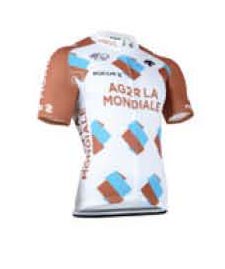 AG2R La Mondiale (Fra)
AG2R La Mondiale (Fra)
Bikes: Focus
Components: Campagnolo
Key riders: Christophe Riblon (France), Jean-Christophe Peraud (France), Romain Bardet (France)
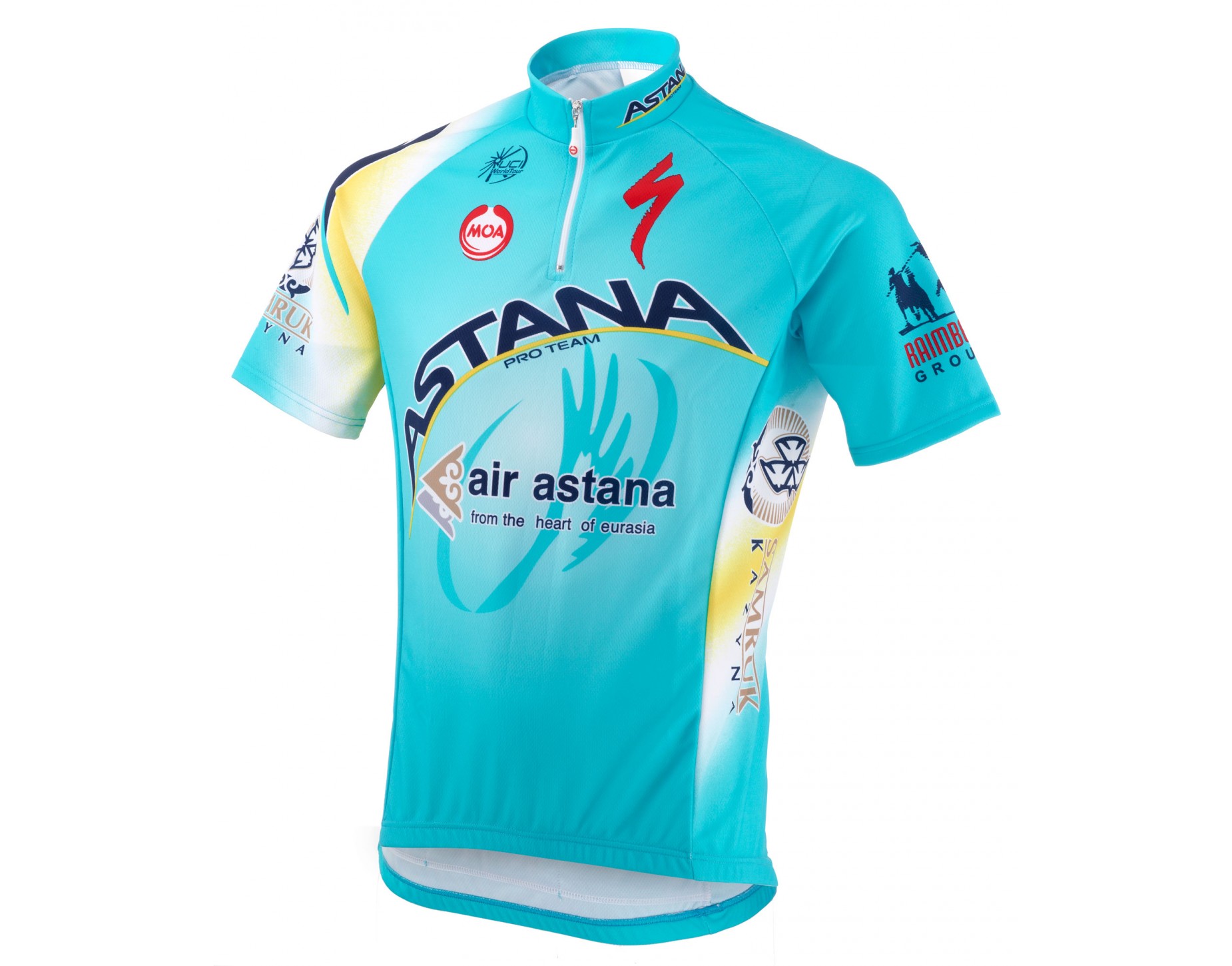 Astana Pro Team (Kaz)
Astana Pro Team (Kaz)
Bikes: Specialized
Components: Campagnolo
Key riders: Vincenzo Nibali (Italy), Jakob Fuglsang (Denmark), Michele Scarponi (Italy), Maxim Iglinskiy (Kazakhstan), Fredrik Kessiakoff (Sweden)
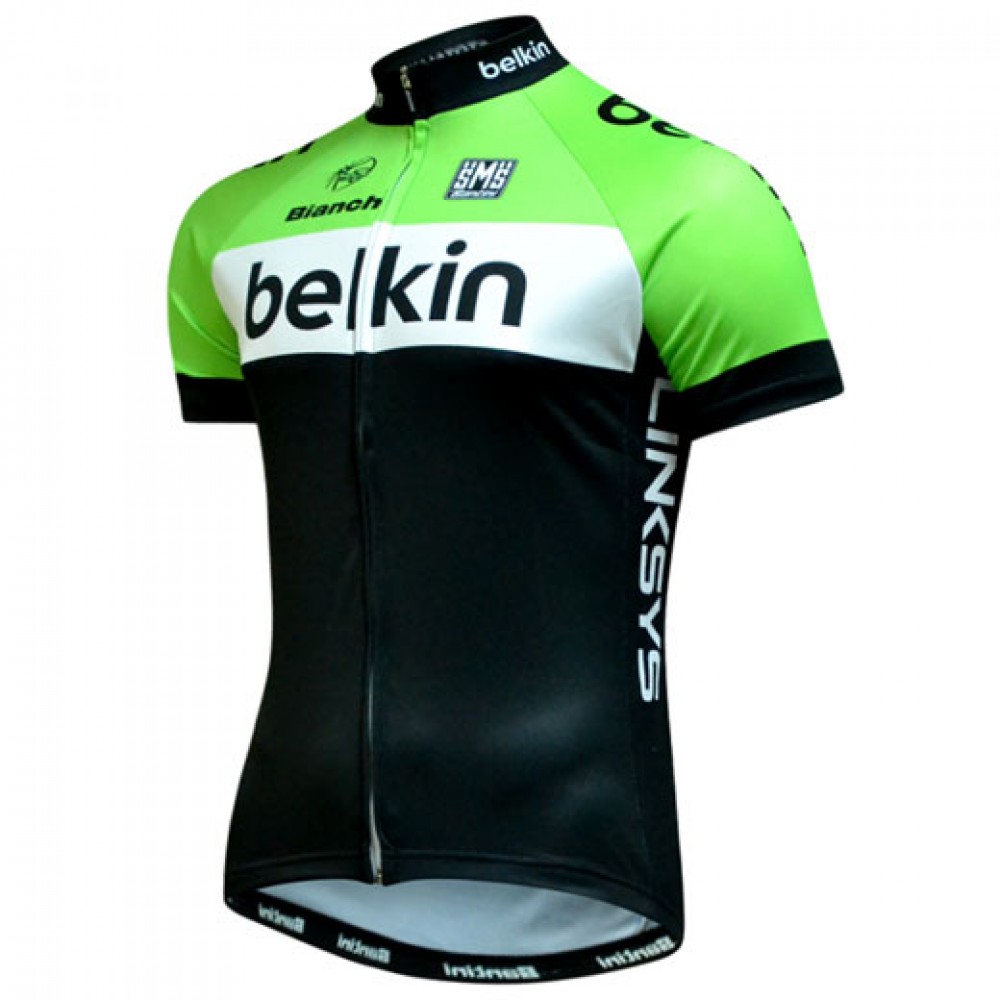 Belkin Pro Cycling Team (Ned)
Belkin Pro Cycling Team (Ned)
Bikes: Bianchi
Components: Shimano
Key riders: Bauke Mollema (Nederlands) Laurens ten Dam (Nederlands), Lars Boom (Nederlands)
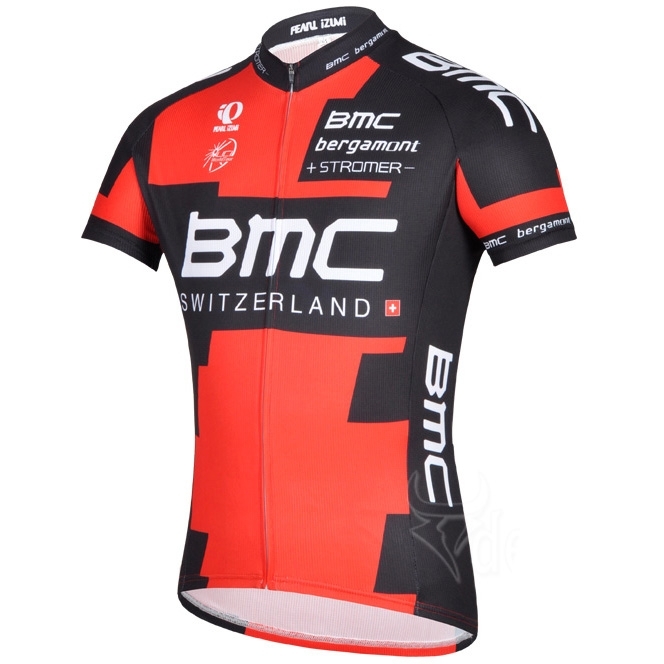 BMC Racing Team (USA)
BMC Racing Team (USA)
Bikes: BMC
Components: Shimano
Key riders: Tejay Van Garderen (USA), Greg van Avermaet (Belgium), Darwin Atapuma (Colombia)
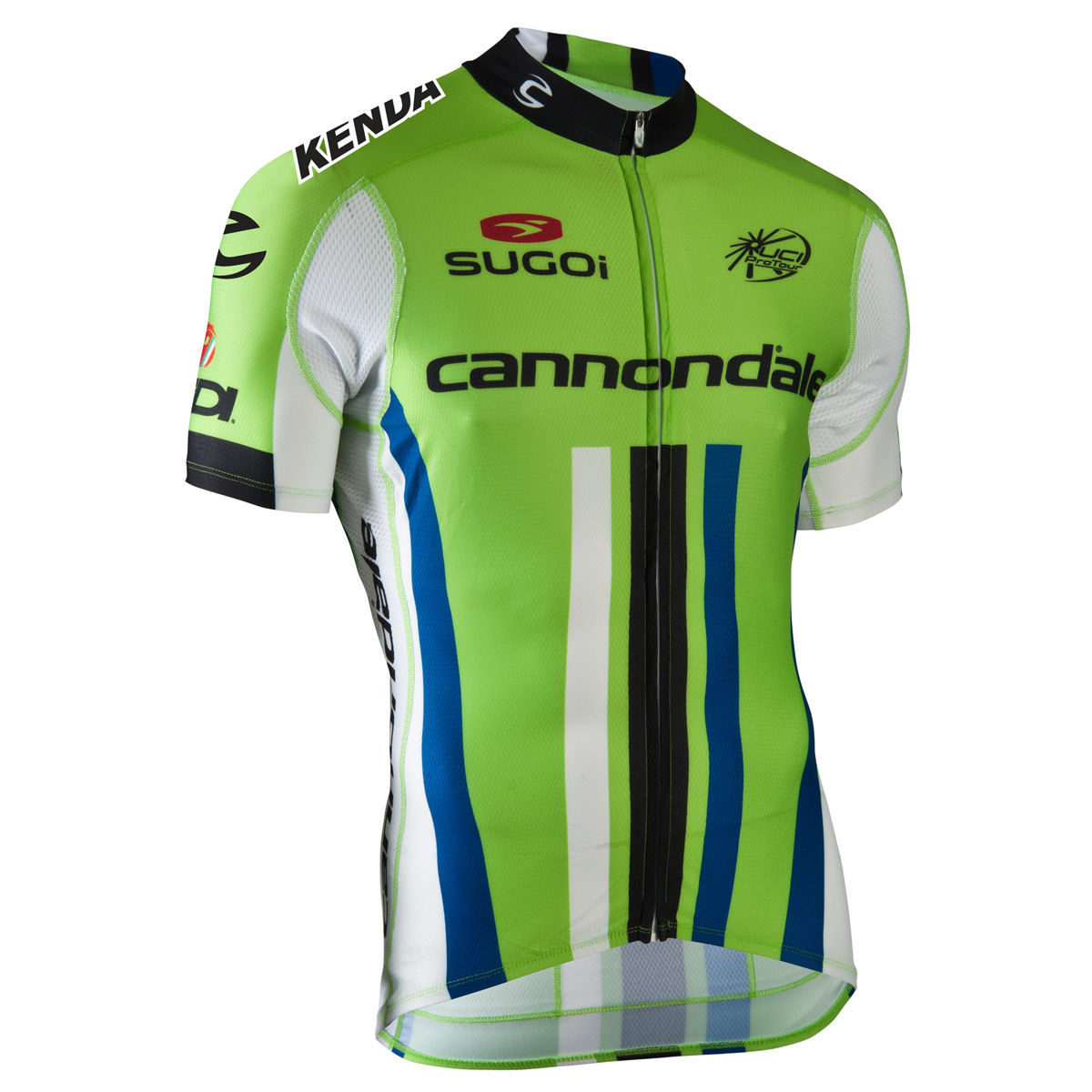 Cannondale (Ita)
Cannondale (Ita)
Bikes: Cannondale
Components: SRAM
Key riders: Peter Sagan (Slovakia), Ted King (USA), Elia Viviani (Italy)
FDJ.fr (Fra)
Bikes: Lapierre
Components: Shimano
Key riders: Thibaut Pinot, Yoann Offredo, Pierrick Fedrigo, Anthony Geslin, Jeremy Roy, Arnaud Demare (all France)
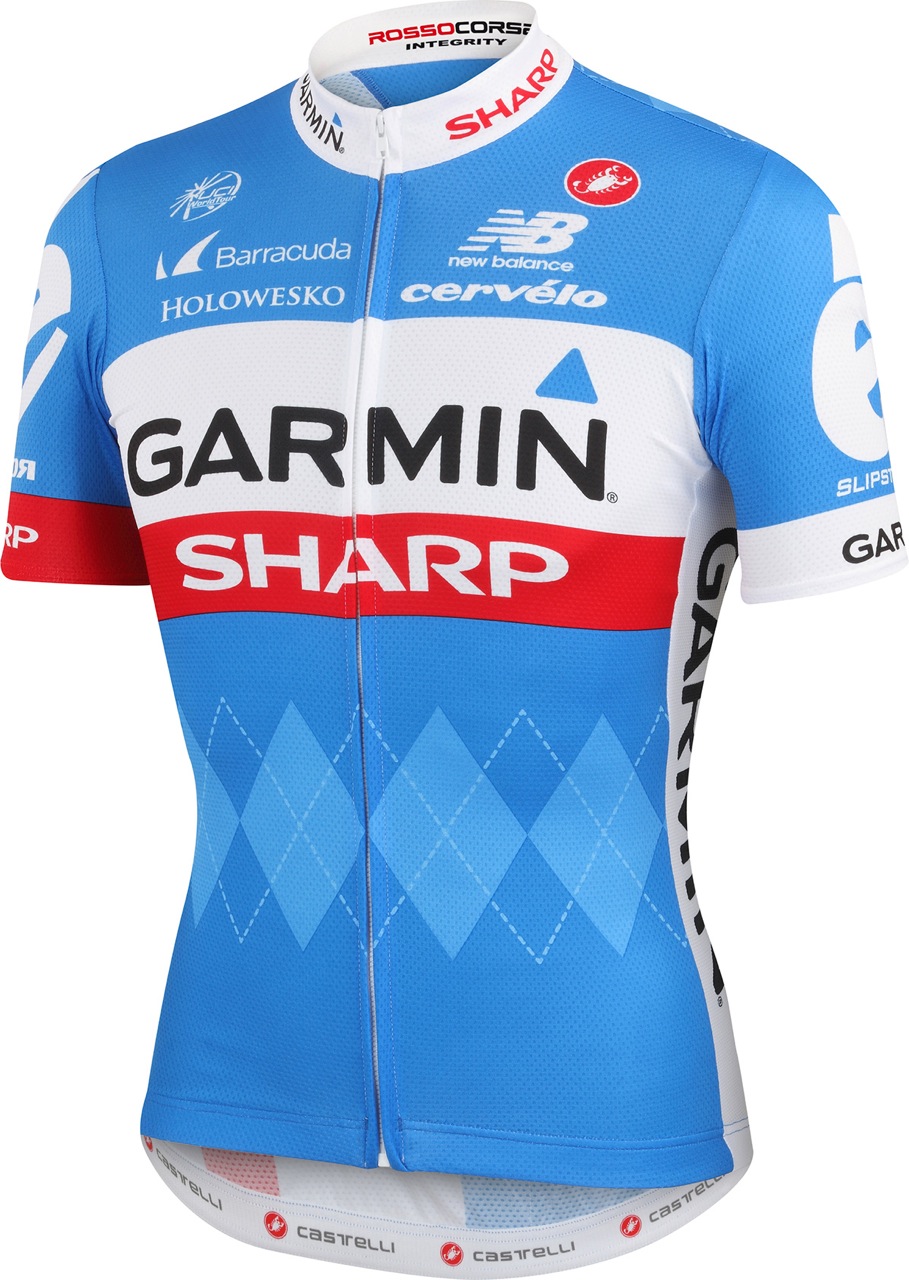 Garmin Sharp (USA)
Garmin Sharp (USA)
Bikes: Cervelo
Components: Shimano
Key riders: Andrew Talansky (USA), Tom Jelte Slagter (Nederlands), Sebastian Langeveld (Nederlands)
Lampre-Merida (Ita)
Bikes: Merida
Components: Shimano
Key riders: Rui Costa (Portugal), Chris Horner (USA)
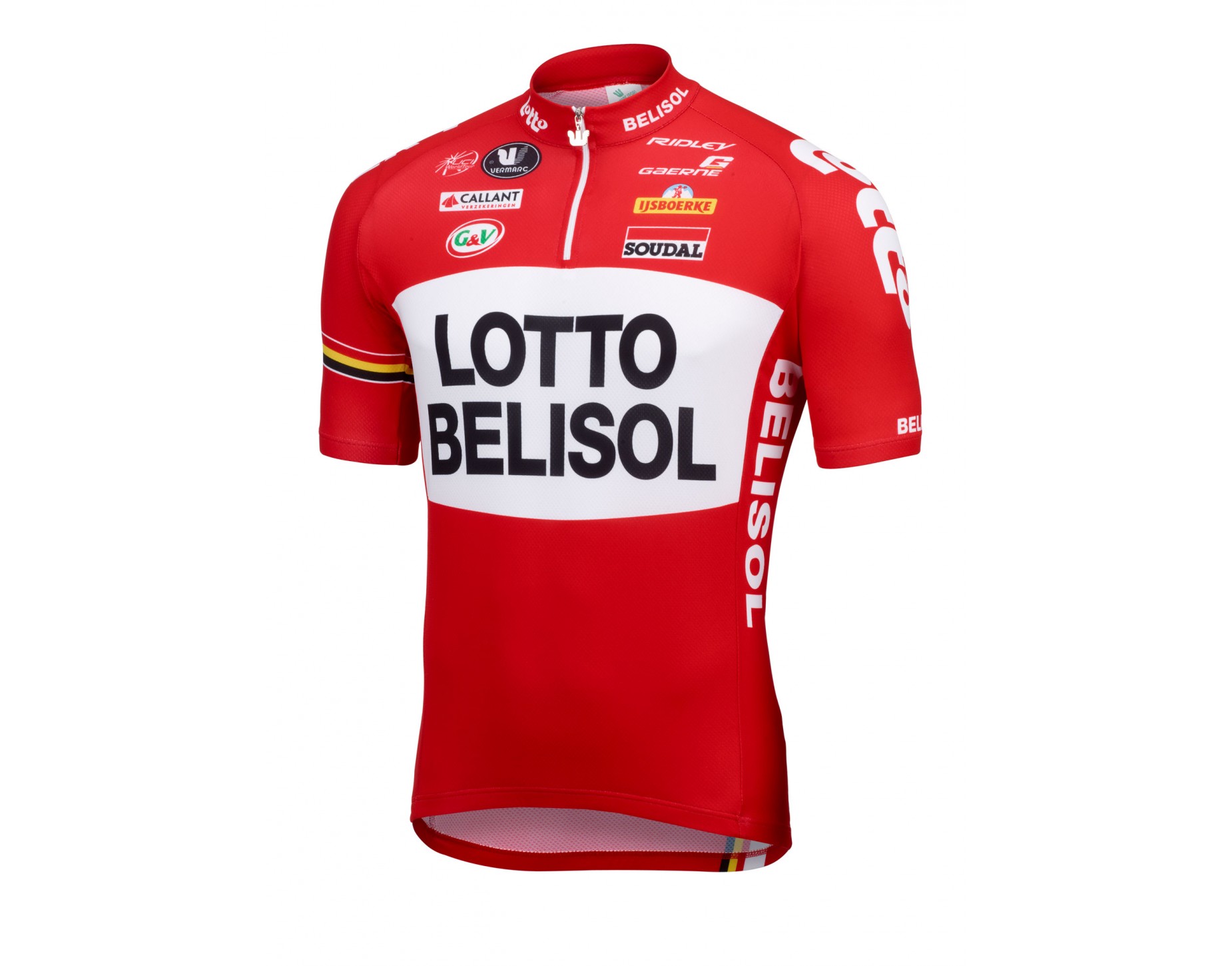 Lotto Belisol (Bel)
Lotto Belisol (Bel)
Bikes: Ridley
Components: Campagnolo
Key riders: Andre Greipel (Germany), Jurgen Van Den Broeck (Belgium), Adam Hansen (Australia)
Movistar Team (Esp)
Bikes: Canyon
Components: Campagnolo
Key riders: Alejandro Valverde (Spain), Ion Izaguirre (Spain), Benat Intxausti (Spain)
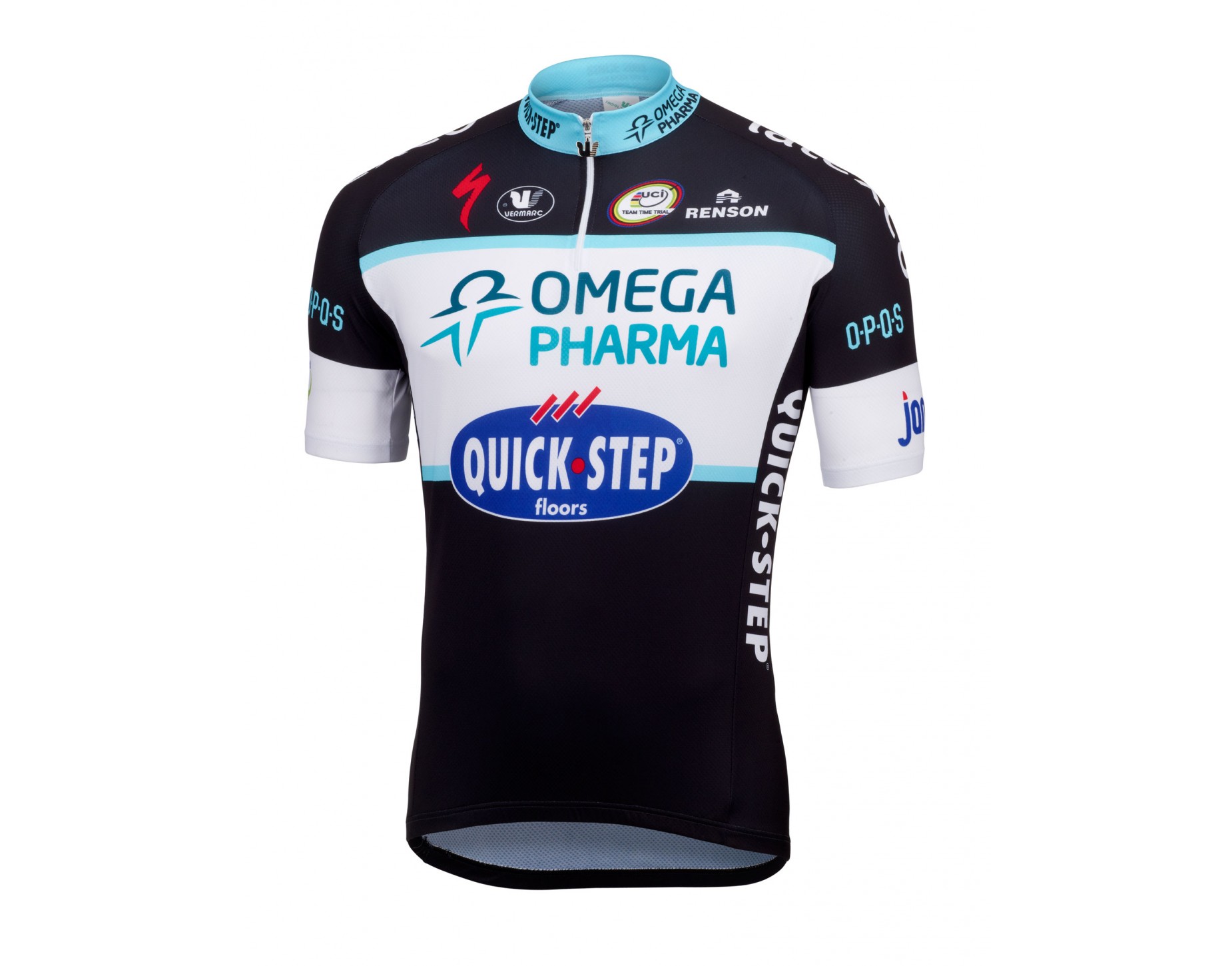 Omega Pharma – Quick Step Cycling Team (Bel)
Omega Pharma – Quick Step Cycling Team (Bel)
Bikes: Specialized
Components: SRAM
Key riders: Michal Kwiatkowski (Poland), Mark Cavendish (UK), Niki Terpstra (Nederlands), Mark Renshaw (Australia), Tony Martin (Germany)
Orica – GreenEDGE (Aus)
Bikes: Scott
Components: Shimano
Key riders: Simon Gerrans (Australia), Simon Clarke (Australia), Simon Yates (UK), Michael Matthews (Australia), Svein Tuft (Canada), Luke Durbridge (Australia)
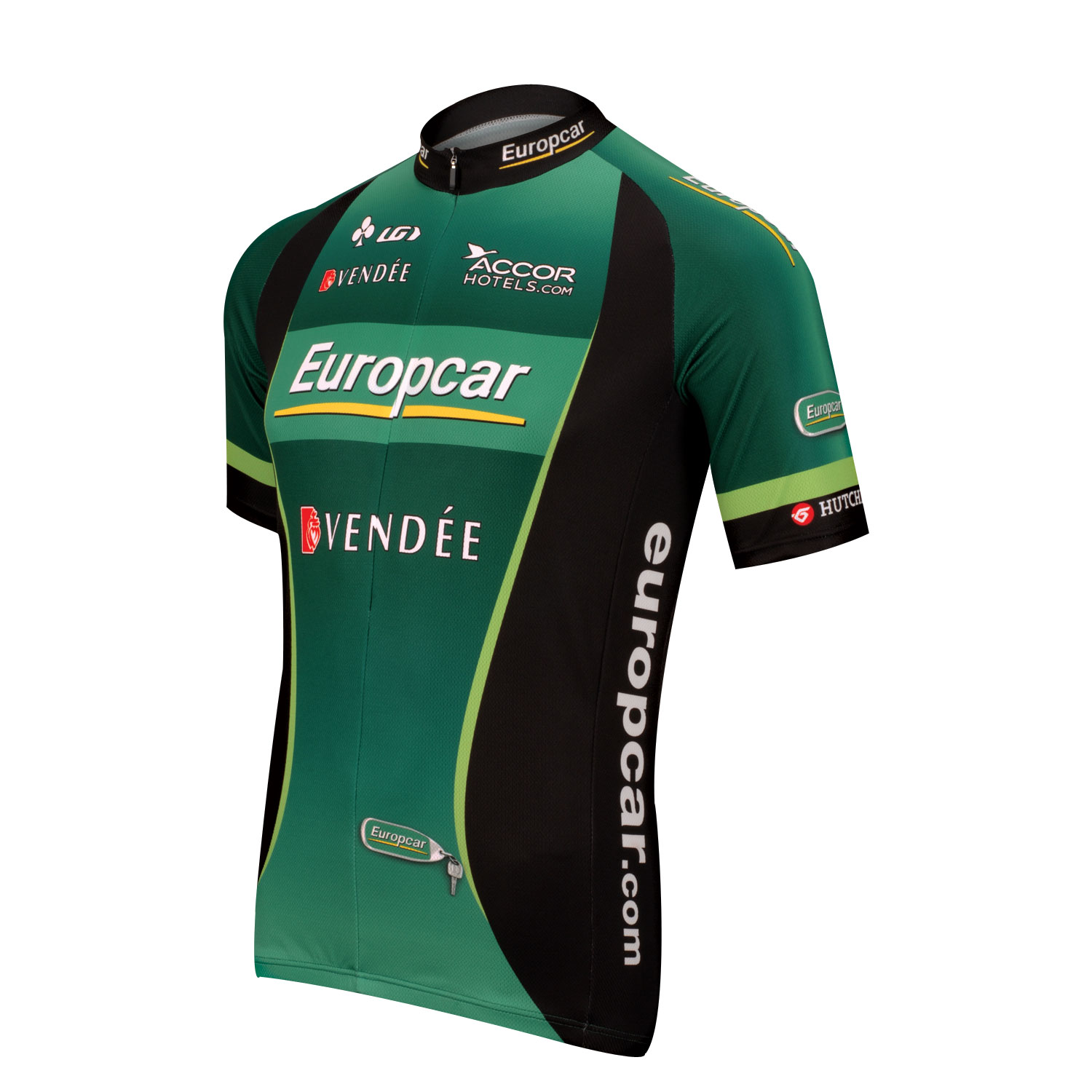 Team Europcar (Fra)
Team Europcar (Fra)
Bikes: Colnago
Components: Campagnolo
Key riders: Pierre Rolland (France), Thomas Voeckler (France), Yukiya Arashiro (Japan)
Team Giant – Shimano (Ned)
Bikes: Giant
Components: Shimano
Key riders: Marcel Kittel (Germany), John Degenkolb (Germany), Koen de Kort (Nederlands)
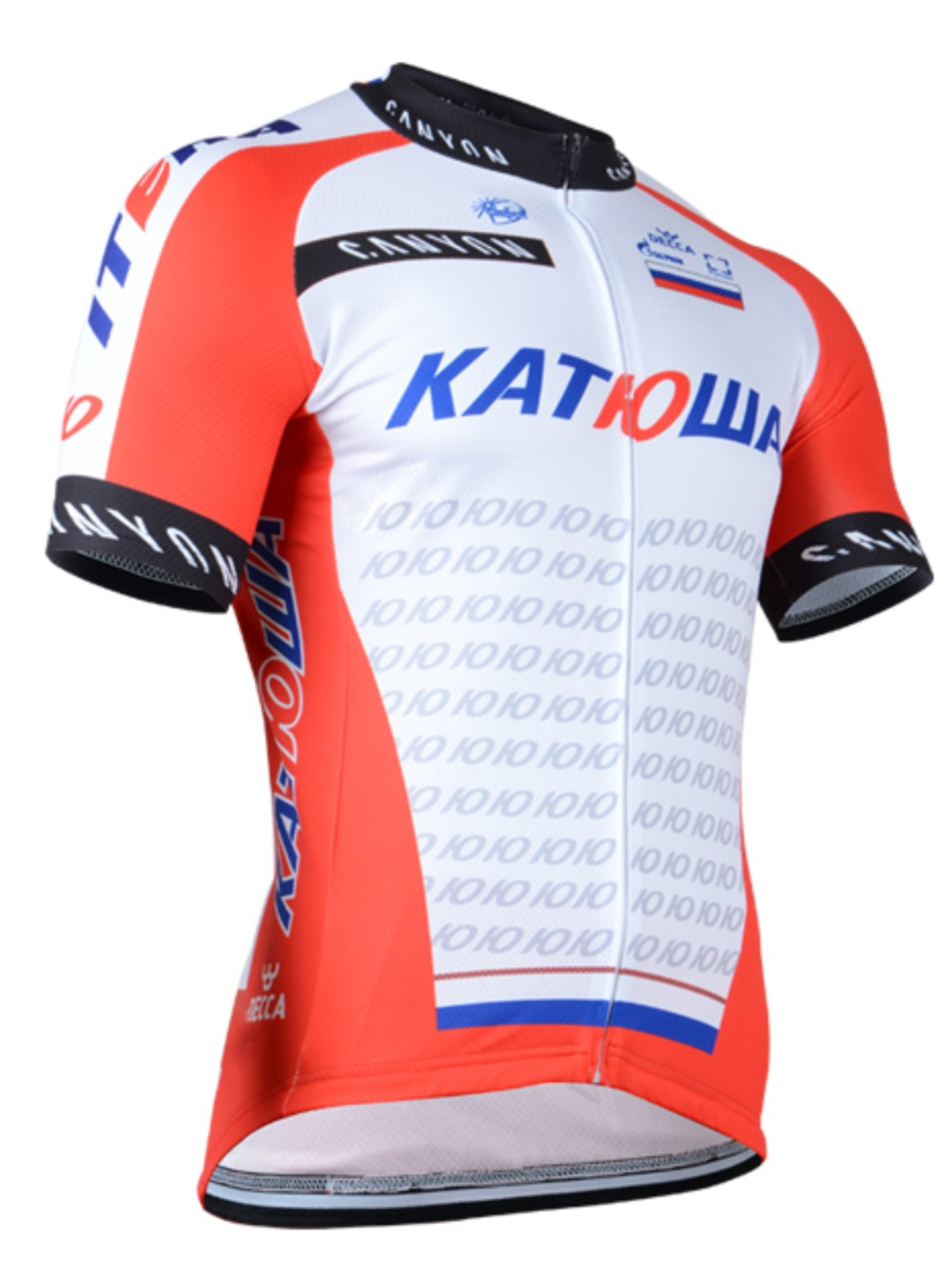 Team Katusha (Rus)
Team Katusha (Rus)
Bikes: Canyon
Components: Shimano
Key riders: Joaquim Rodriguez (Spain), Alexander Kristoff (Norway), Simon Spilak (Slovenia), Yuri Trofimov (Russia)
Team Sky (Gbr)
Bikes: Pinarello
Components: Shimano
Key riders: Chris Froome (UK), Richie Porte (Australia), Geraint Thomas (UK), Mikel Nieve (Spain)
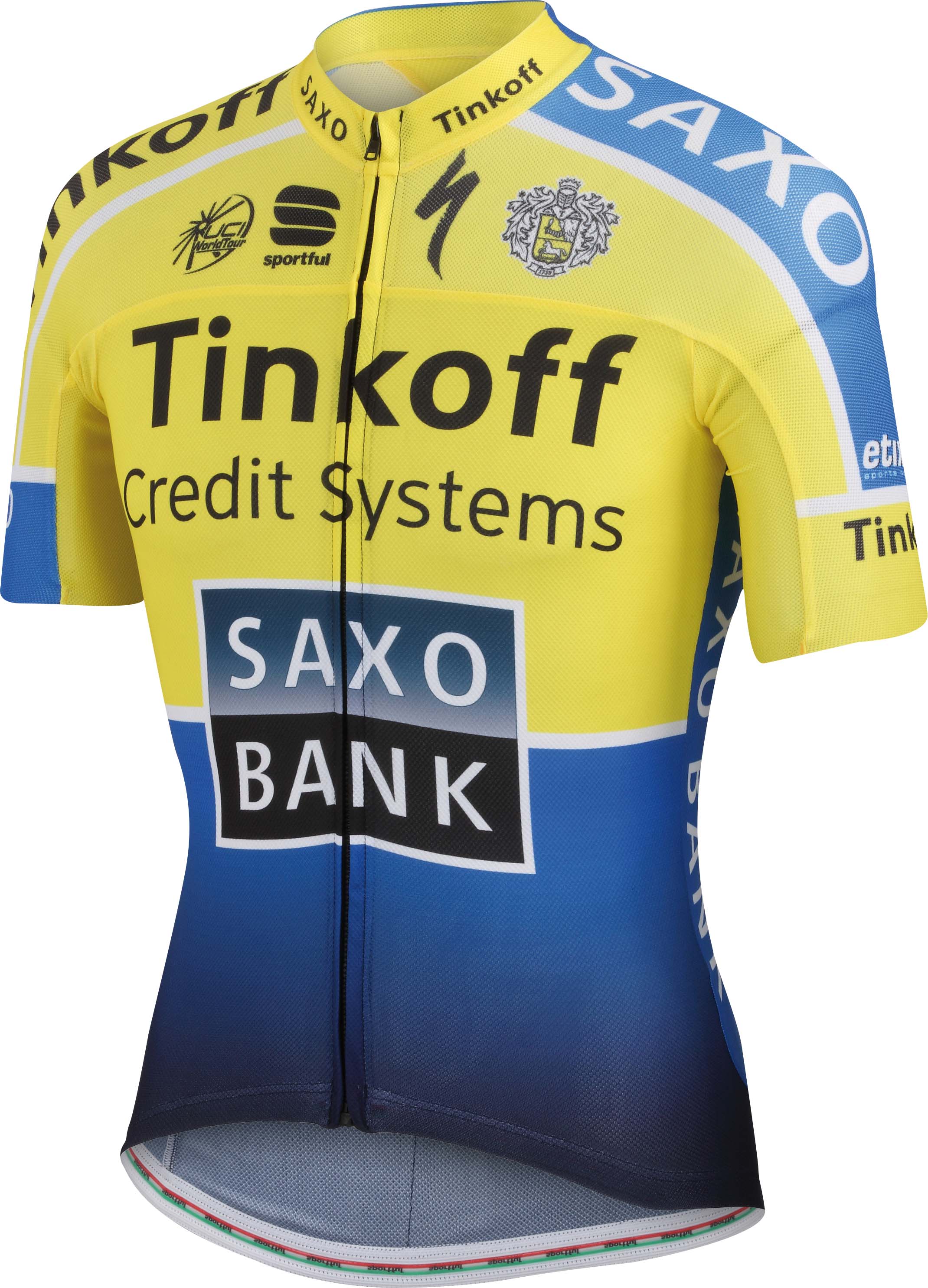 Tinkoff Saxo (Rus)
Tinkoff Saxo (Rus)
Bikes: Specialized
Components: SRAM
Key riders: Alberto Contador (Spain), Rafel Majka (Poland), Michael Rogers (Australia), Nicolas Roche (Ireland)
Trek Factory Racing (USA)
Bikes: Trek
Components: Shimano
Key riders: Andy Schleck (Luxembourg), Frank Schleck (Luxembourg), Jens Voigt (Germany), Fabian Cancellara (Switzerland)
Wildcards
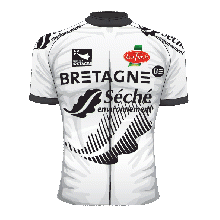 Bretagne – Séché Environnement (Fra)
Bretagne – Séché Environnement (Fra)
Bikes: Kemo
Components: Shimano
Key riders: Brice Feillu (France), Arnaud Gerard (France), Anthony Delaplace (France)
Cofidis, Solutions Crédits (Fra)
Bikes: Look
Components: Shimano
Key riders: Daniel Navarro (Spain), Rein Taaramae (Estonia), Jerome Simon (France)
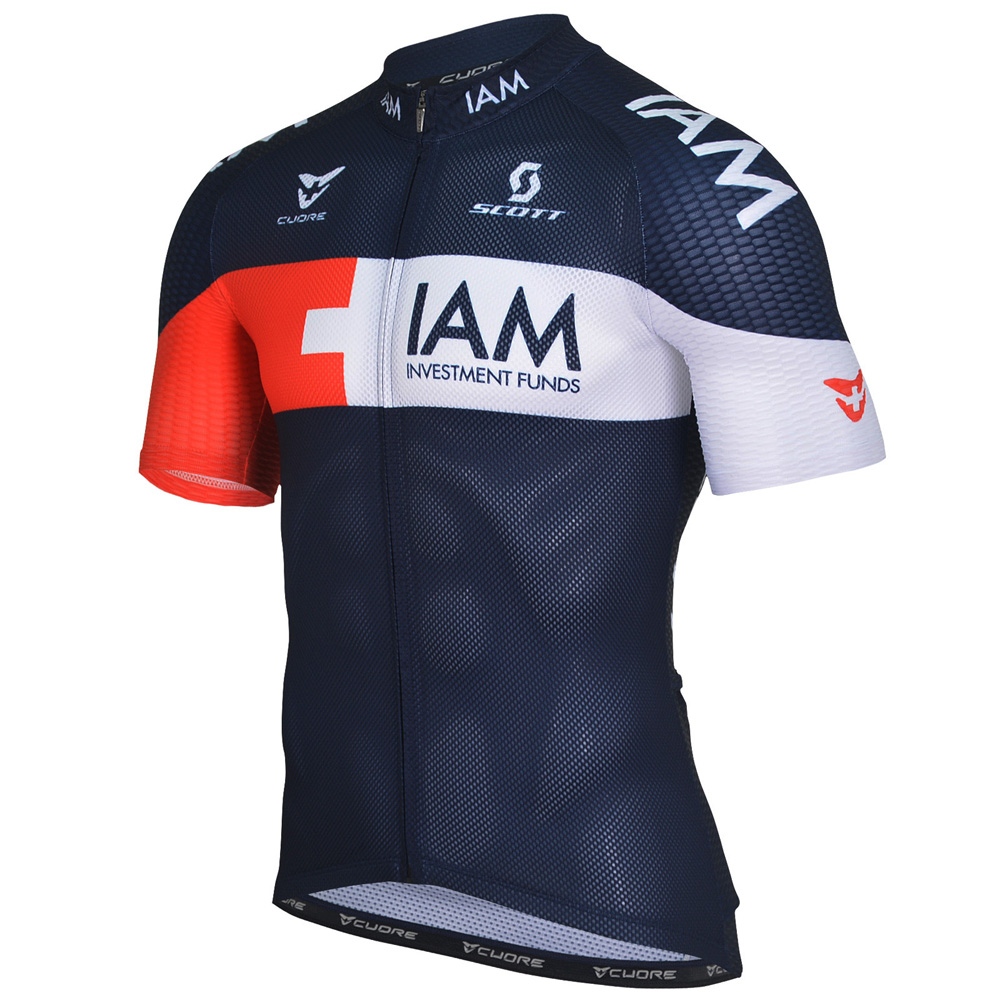 IAM Cycling (Sui)
IAM Cycling (Sui)
Bikes: Scott
Components: Shimano
Key riders: Sylvain Chavanel (France), Heinrich Haussler (Australia), Matthias Frank (Switzerland)
Team NetApp – Endura (Ger)
Bikes: Fuji
Components: Shimano
Key riders: Leo Konig (Germany), Zak Dempster (Australia), Jan Barta (Czech Republic), Tiago Machado (Portugal)
Ride On content is editorially independent, but is supported financially by members of Bicycle Network. If you enjoy our articles and want to support the future publication of high-quality content, please consider helping out by becoming a member.


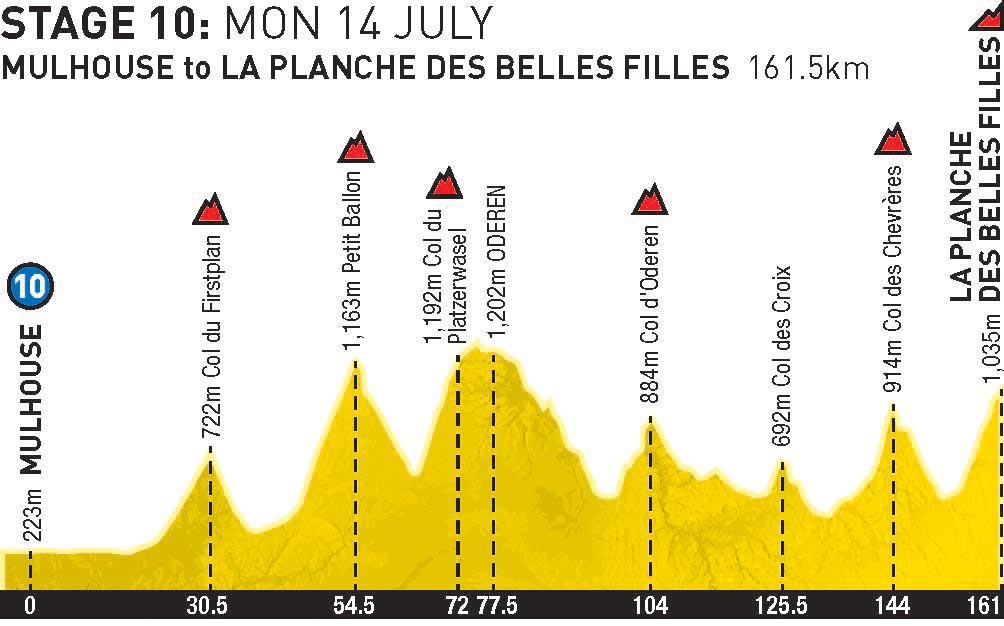
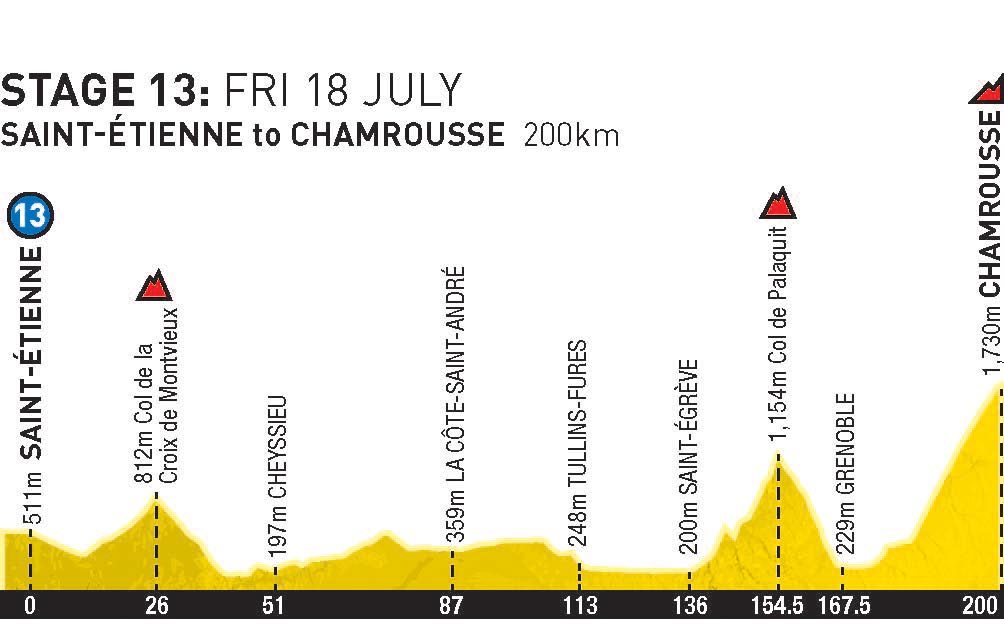
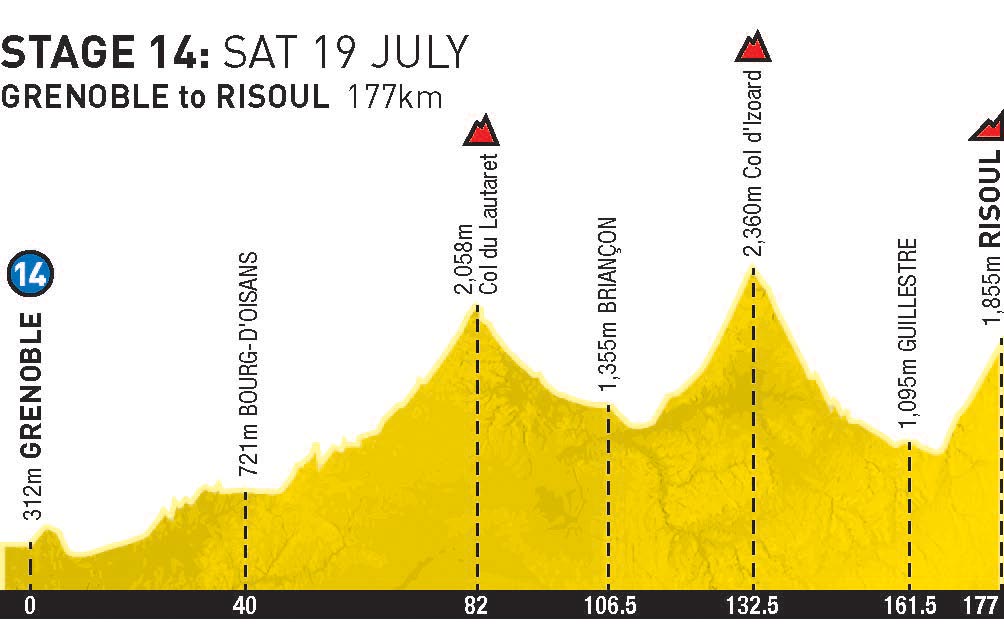
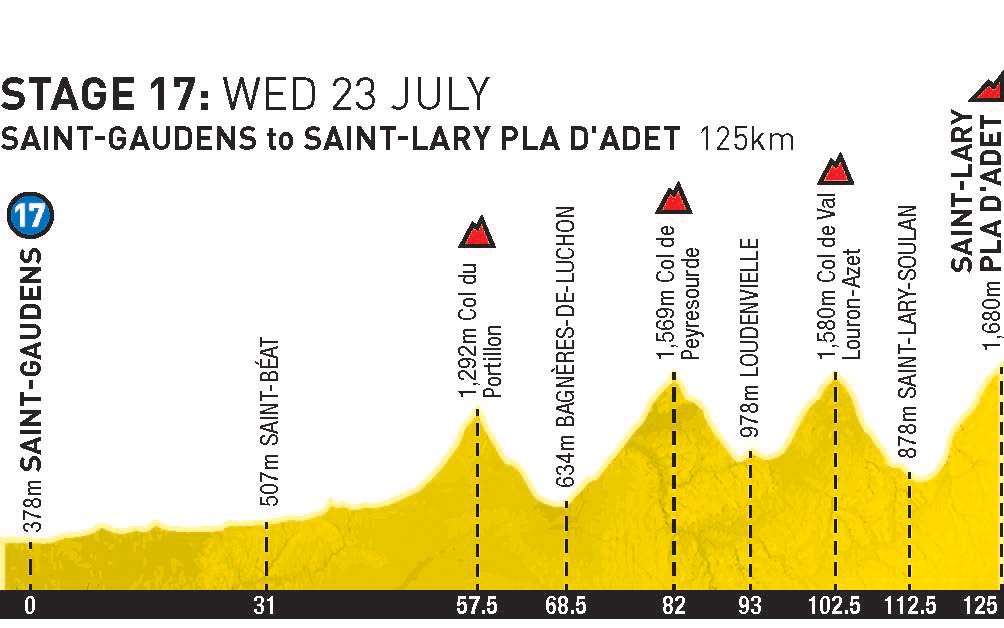
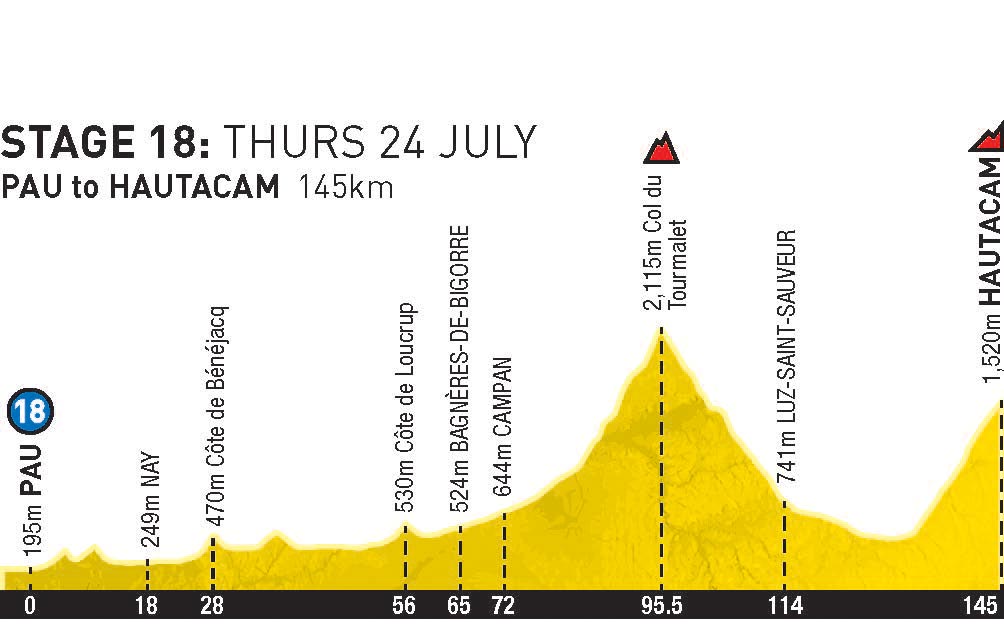
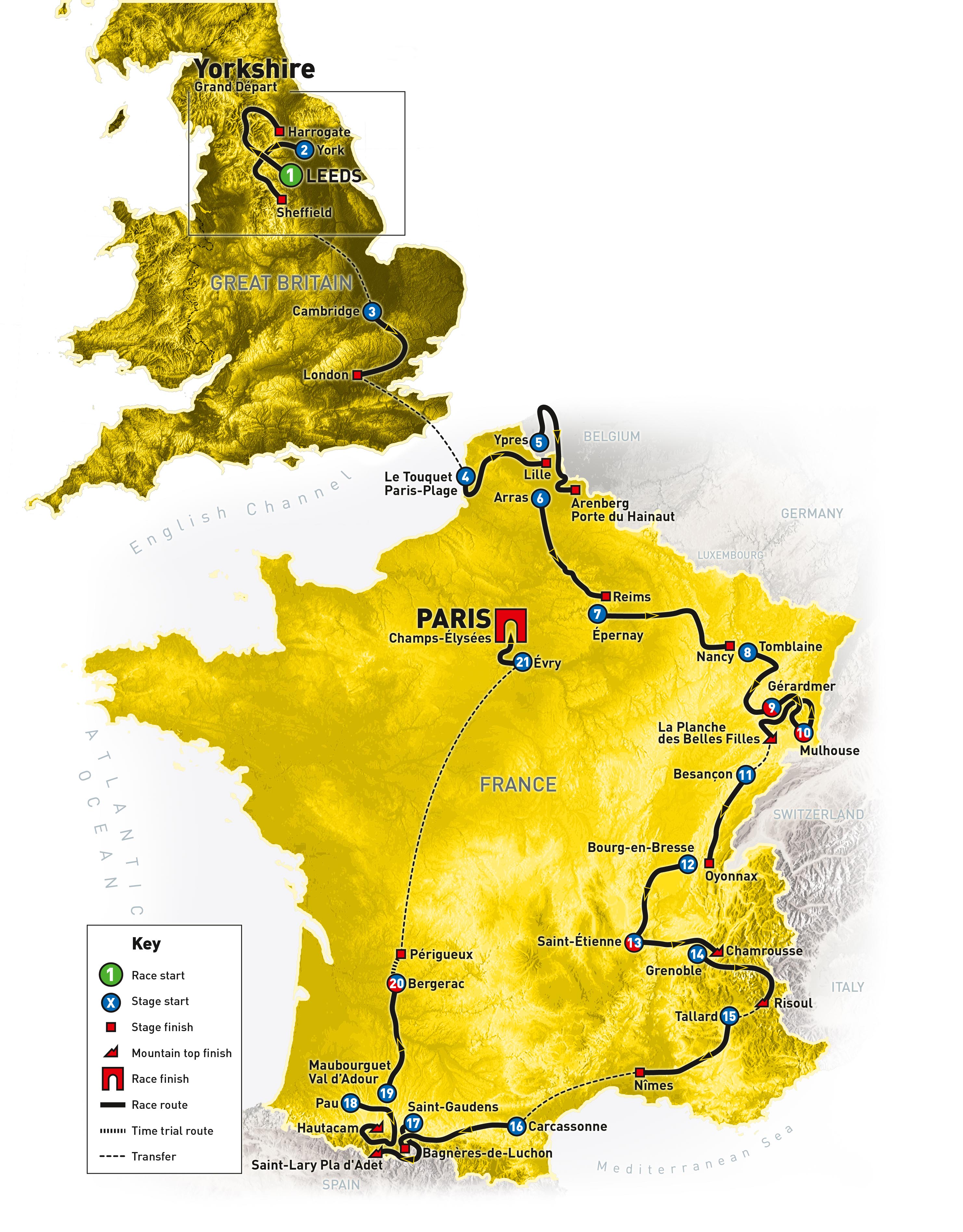
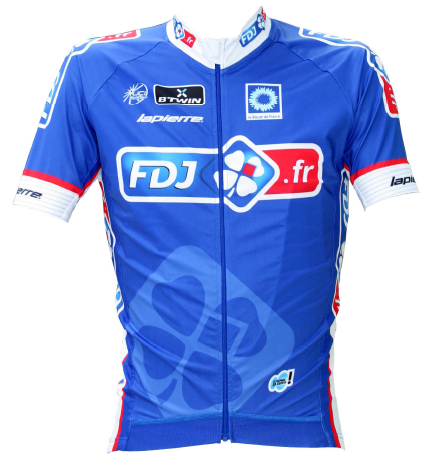
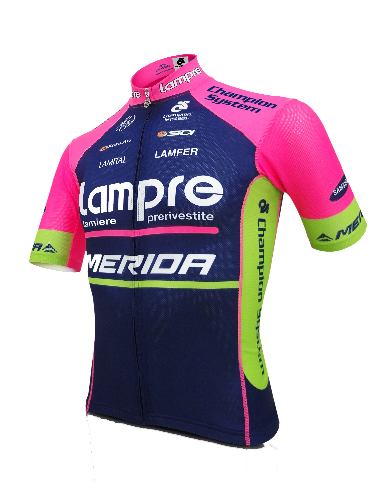
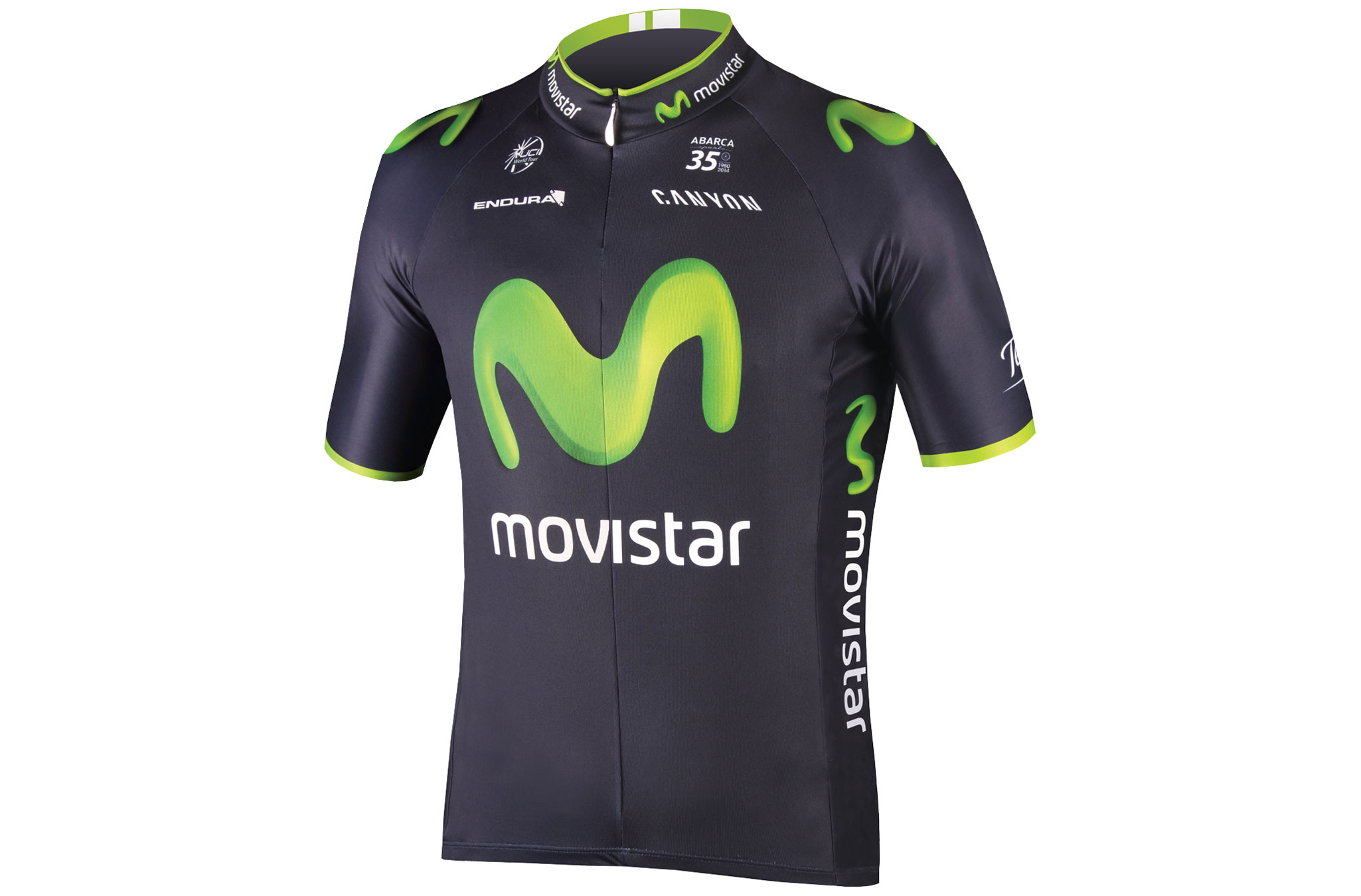
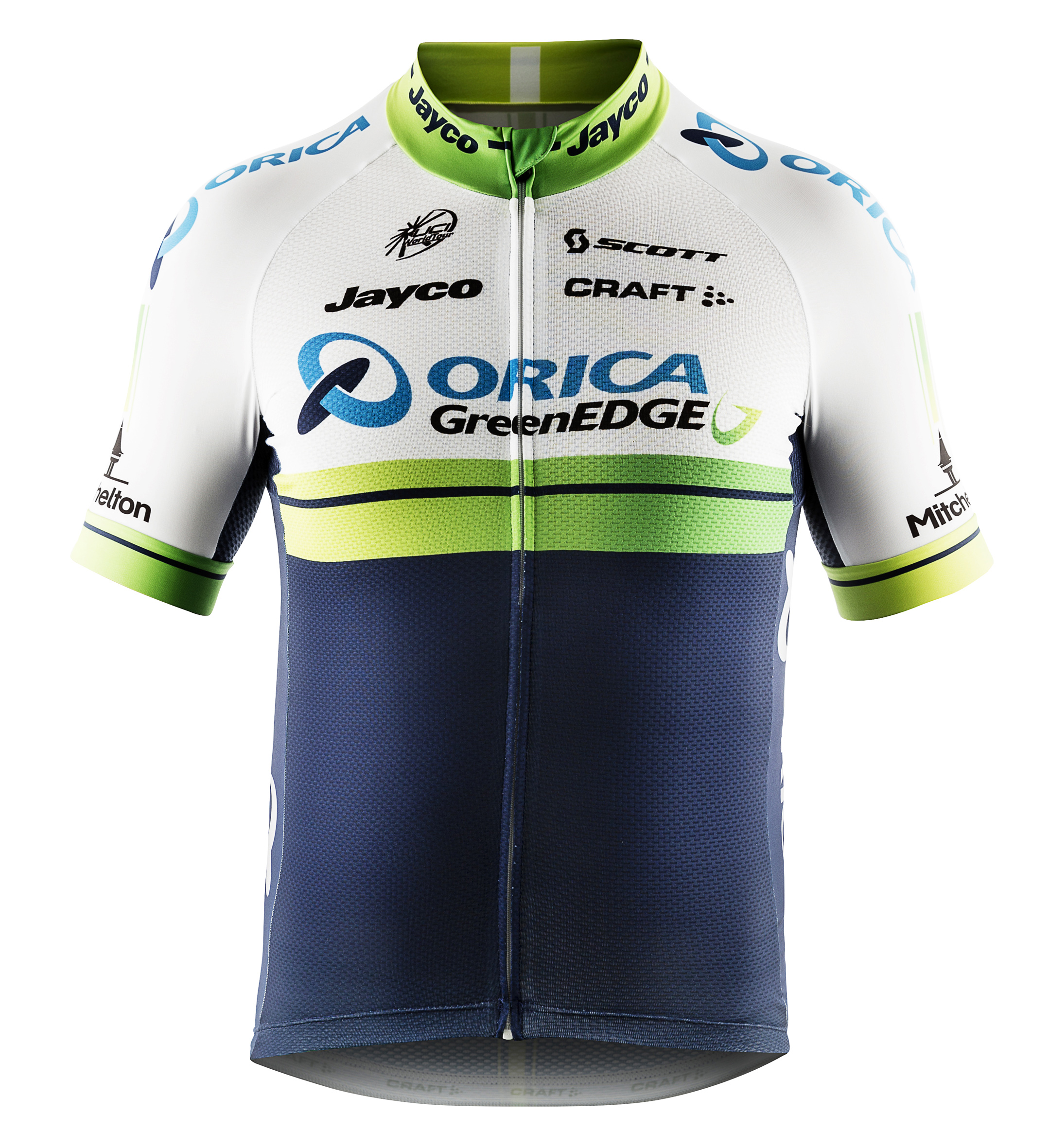
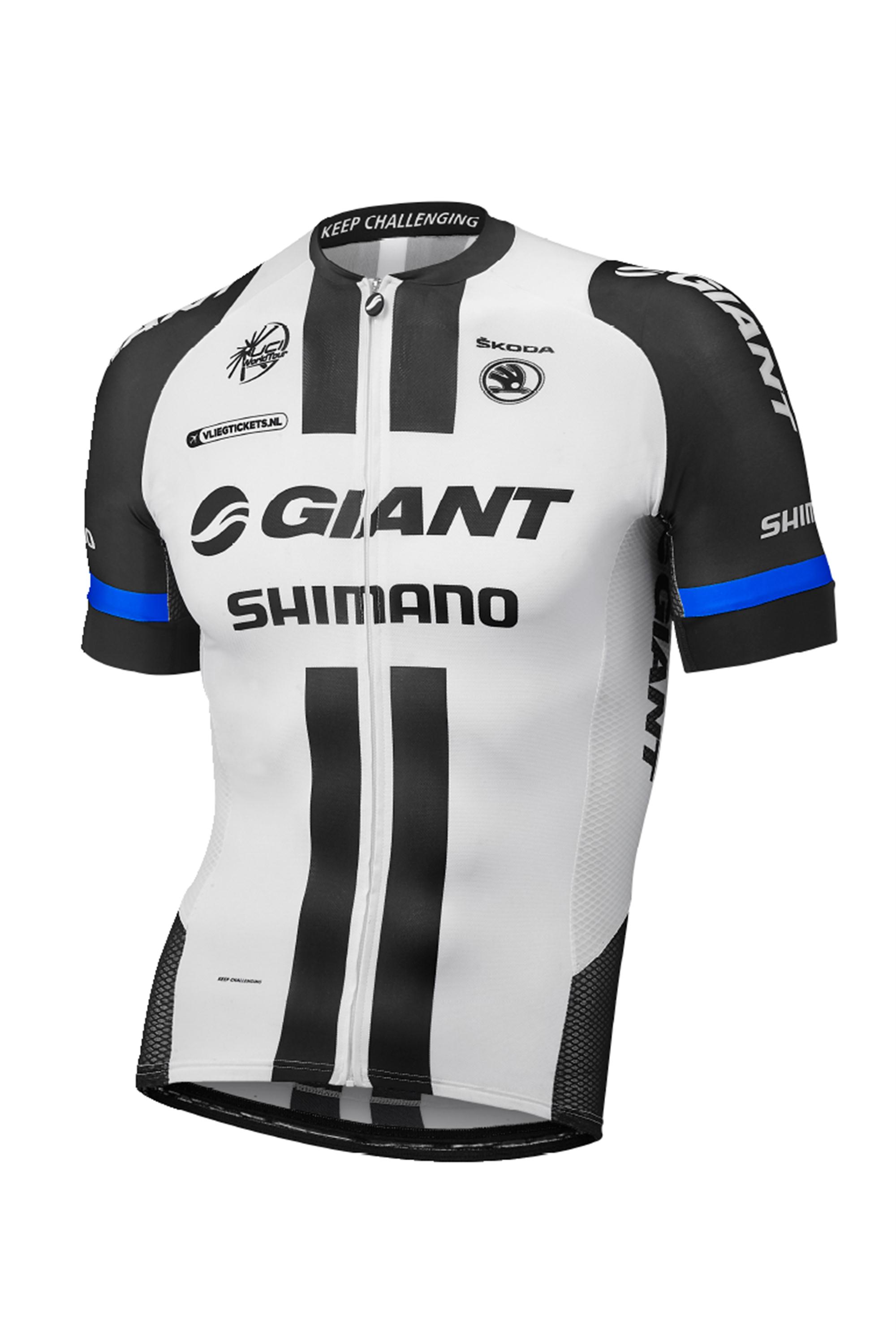
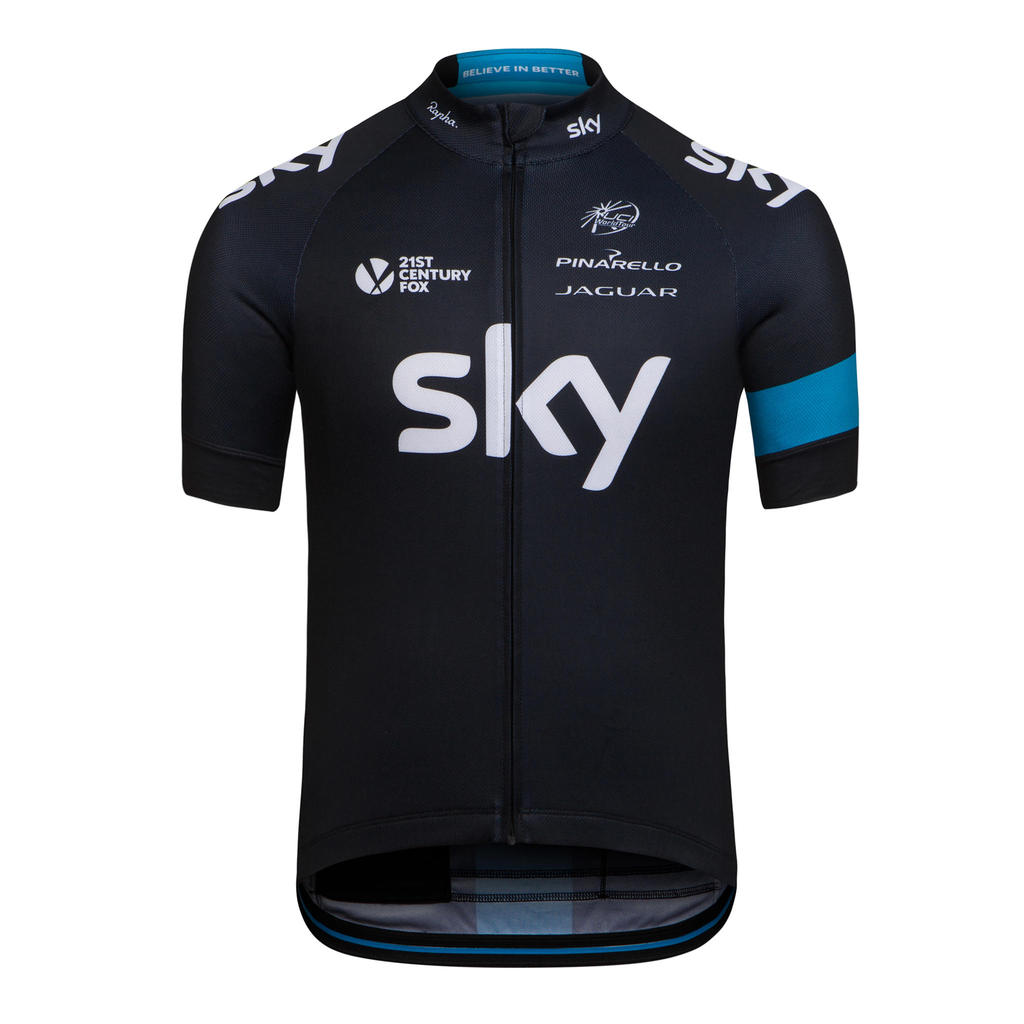
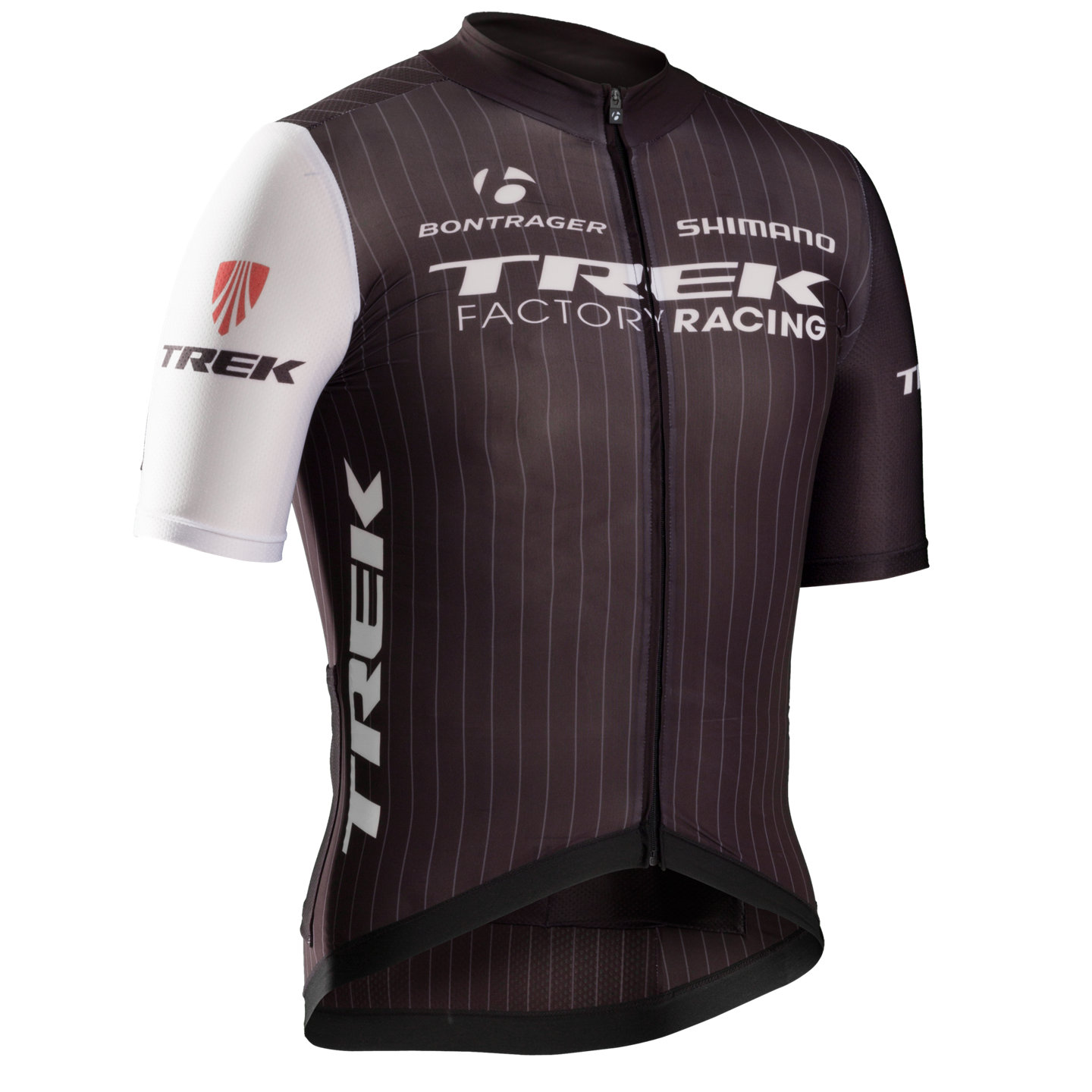
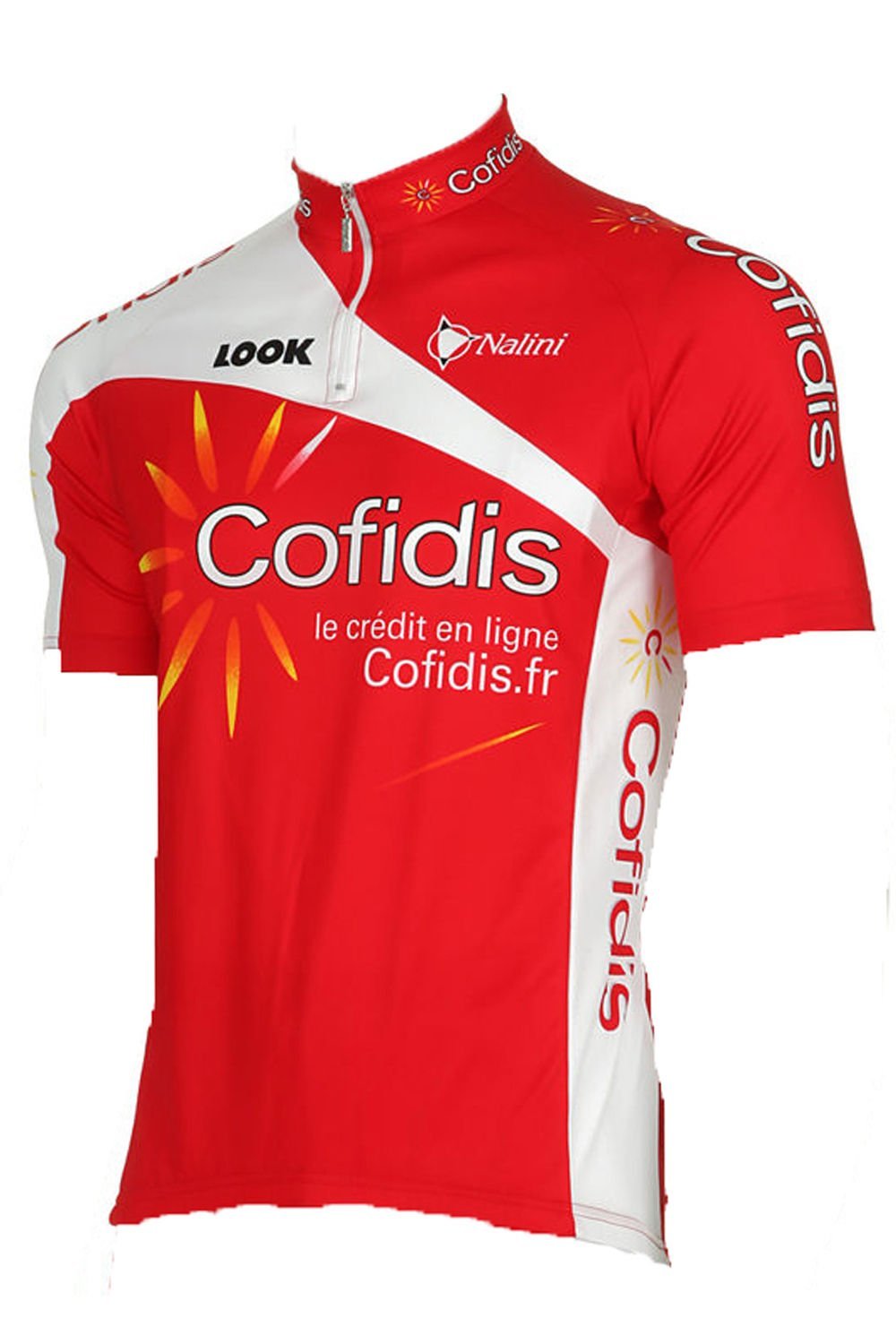
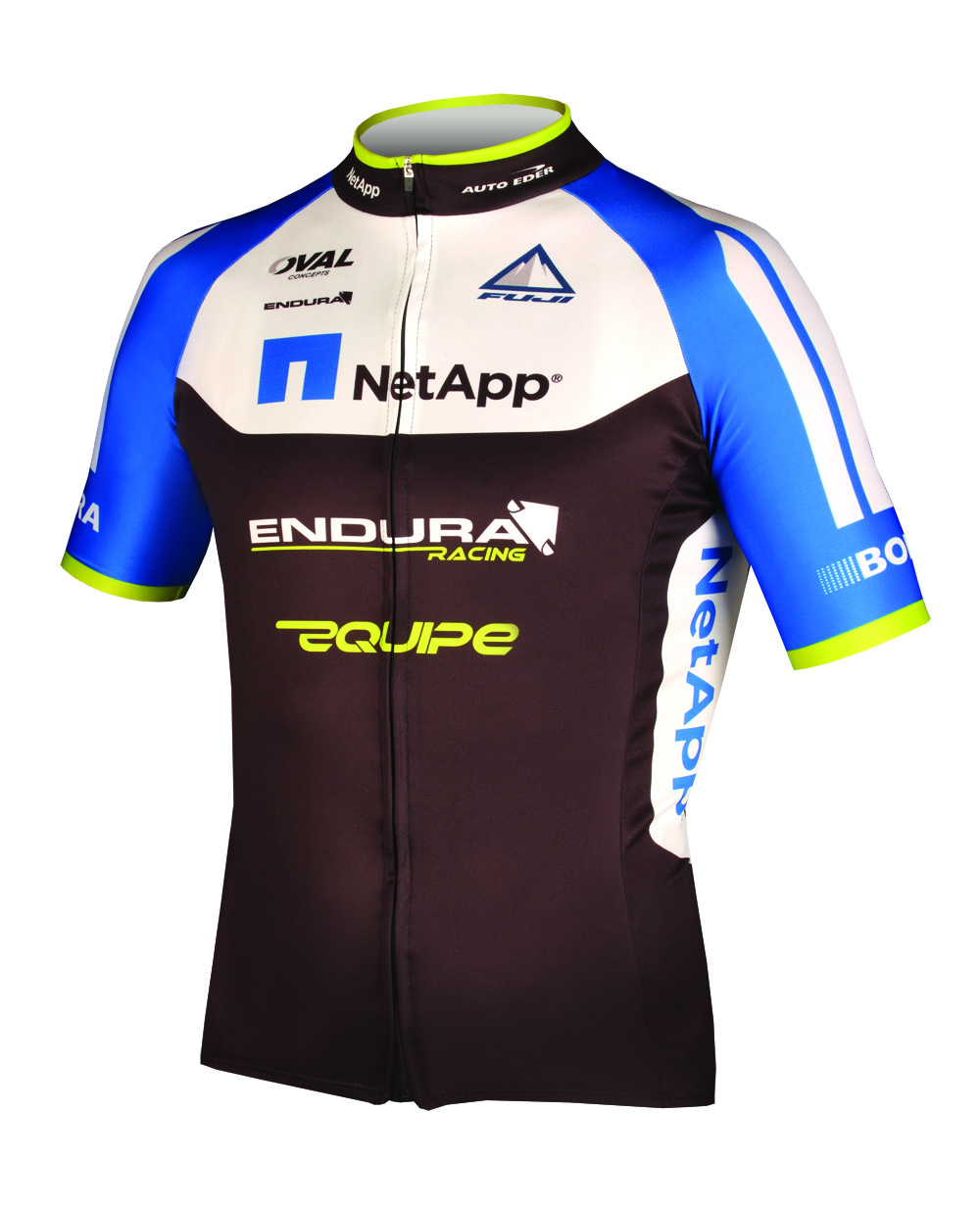
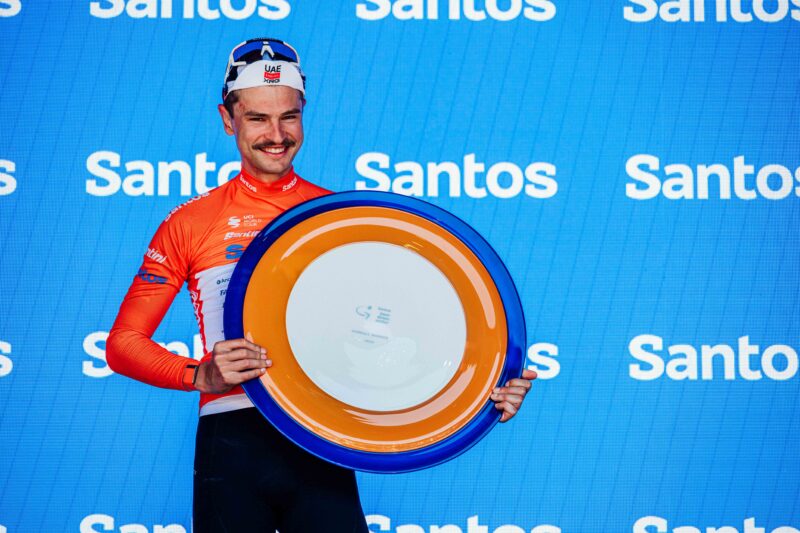




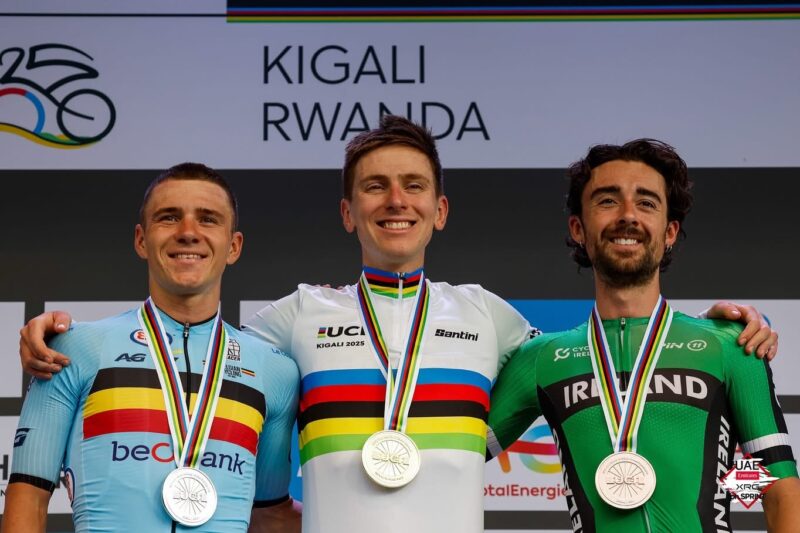
1 thought on “Tour de France 2014”